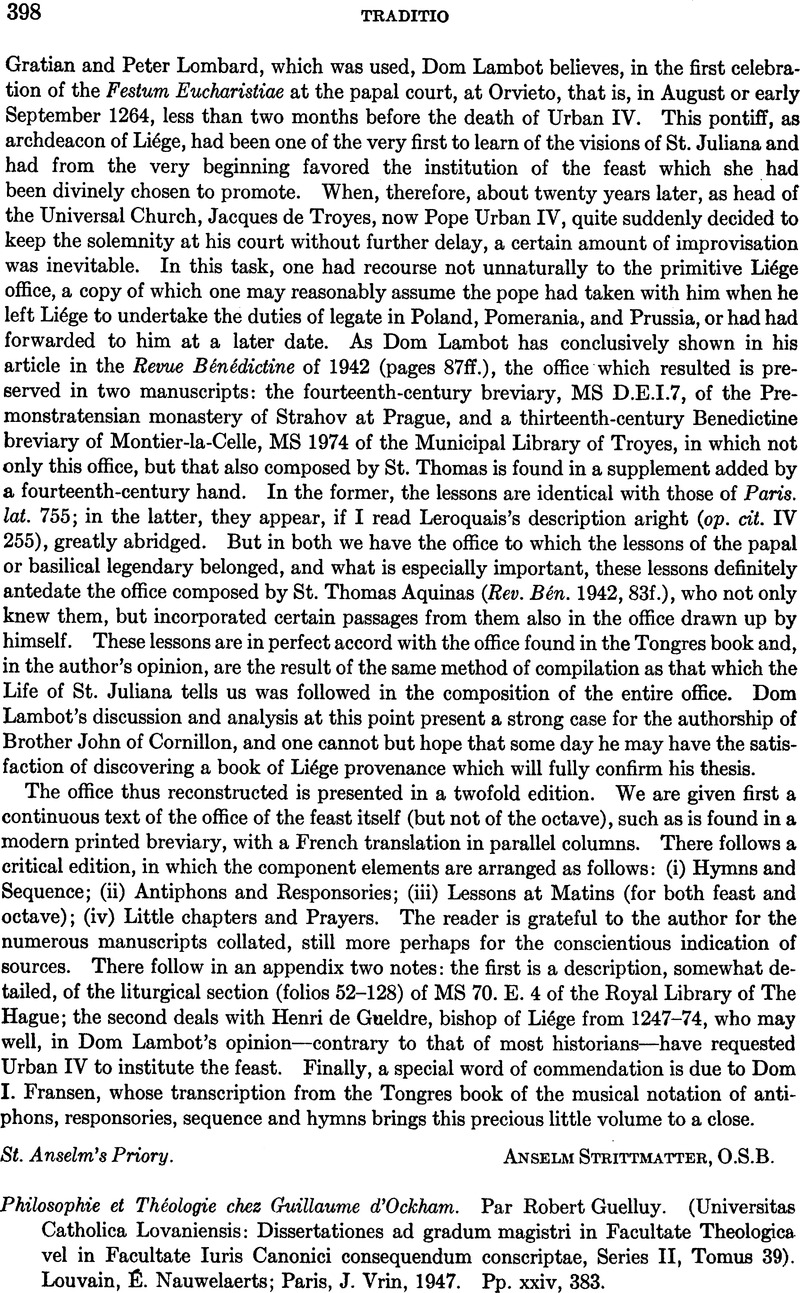No CrossRef data available.
Published online by Cambridge University Press: 29 July 2016

1 Cf. particularly La théologie comme science au XIIIe sciècle (2e éd. Paris 1943). Fr. Guelluy inclines to Fr. Chenu's interpretation of St. Thomas rather than Fr. Bonnefoy's. Cf. the criticisms on p. 37 note 2, and 40 note 1.Google Scholar
2 Fr. Guelluy also attributes this distinction to Scotus (pp. 69–71). Here, as usual when treating of Scotus, he does not give any references to the Subtle Doctor's own texts. According to E. Krebs, this distinction was made by some disciples of Scotus on the basis of certain texts of the master. (Cf. Krebs, E., Theologie und Wissenschaft nach der Lehre der Hochscholastik , Beiträge zur Geschichte der Philosophie des Mittelalters XI 3–4, Münster 1912, p. 29∗. This work is referred to in Fr. Guelluy's extensive bibliography on the Scotist conception of theology). Yet Scotus himself does not seem to have explicitly taught it. If we follow Scotus’ Prologue to the Opus Oxoniense, we cannot call the theology which is a priori possible, as Fr. Guelluy does, theologia in se. The term is there reserved for God's theology in distinction to theologia nostra.—The author constantly interprets pro statu isto as the state of viator, previous to the Beatific Vision. In Scotus’ Prologue it seems to mean the state of fallen nature. (Cf. Opus Oxon. Prol. Q. 1, a. 2, n. 13; Quaracchi, ed. vol. 1, n. 11, p. 13). Owing to the similarity of terminology in Scotus’ and Ockham's Prologues, the question may at least be raised whether the term does not have the same meaning in Ockham's Prologue. In that case, the theology a priori possible to us would be the theology of men had they not fallen from the state of innocence.Google Scholar
3 Cf. Paulus, J., ‘Sur les origines du nominalisme,’ Revue de philosophie (1937) 329.Google Scholar
4 Cf. Böhner, Fr. Ph., ‘The Realistic Conceptualism of William Ockham,’ Tradito 4 (1946) 307–335; Pegis, A. C., ‘The Dilemma of Being and Unity’ in Essays in Thomism (New York 1942) 151–183. I refer here to the question whether Ockham is to be called a nominalist or realist and the ultimate meaning of his theory of knowledge. I do not refer to the special problem of the intuitive knowledge of a non-existent object, debated by these authors. Fr. Guelluy remarks that the solution of this problem is difficult, and adds, surprisingly enough, that it is without great importance (p. 102, note).Google Scholar